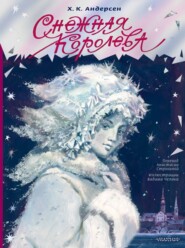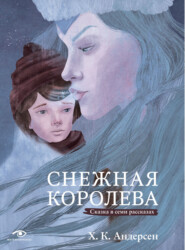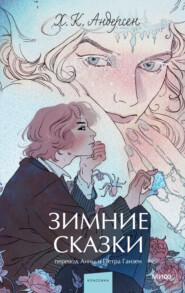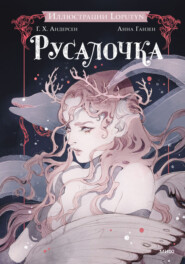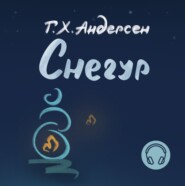По всем вопросам обращайтесь на: info@litportal.ru
(©) 2003-2024.
✖
Hans Andersen's Fairy Tales. First Series
Настройки чтения
Размер шрифта
Высота строк
Поля
"Ah, yes! so it happens in the world," thought the fir tree. He believed it all, because it was related by such a pleasant man.
"Ah, well!" he thought, "who knows? Perhaps I may fall down, too, and marry a princess;" and he looked forward joyfully to the next evening, expecting to be again decked out with lights and playthings, gold and fruit. "To-morrow I will not tremble," thought he; "I will enjoy all my splendor, and I shall hear the story of Humpty Dumpty again, and perhaps of Ivede-Avede." And the tree remained quiet and thoughtful all night.
In the morning the servants and the housemaid came in. "Now," thought the fir tree, "all my splendor is going to begin again." But they dragged him out of the room and upstairs to the garret and threw him on the floor in a dark corner where no daylight shone, and there they left him. "What does this mean?" thought the tree. "What am I to do here? I can hear nothing in a place like this;" and he leaned against the wall and thought and thought.
And he had time enough to think, for days and nights passed and no one came near him; and when at last somebody did come, it was only to push away some large boxes in a corner. So the tree was completely hidden from sight, as if it had never existed.
"It is winter now," thought the tree; "the ground is hard and covered with snow, so that people cannot plant me. I shall be sheltered here, I dare say, until spring comes. How thoughtful and kind everybody is to me! Still, I wish this place were not so dark and so dreadfully lonely, with not even a little hare to look at. How pleasant it was out in the forest while the snow lay on the ground, when the hare would run by, yes, and jump over me, too, although I did not like it then. Oh! it is terribly lonely here."
"Squeak, squeak," said a little mouse, creeping cautiously towards the tree; then came another, and they both sniffed at the fir tree and crept in and out between the branches.
"Oh, it is very cold," said the little mouse. "If it were not we should be very comfortable here, shouldn't we, old fir tree?"
"I am not old," said the fir tree. "There are many who are older than I am."
"Where do you come from?" asked the mice, who were full of curiosity; "and what do you know? Have you seen the most beautiful places in the world, and can you tell us all about them? And have you been in the storeroom, where cheeses lie on the shelf and hams hang from the ceiling? One can run about on tallow candles there; one can go in thin and come out fat."
"I know nothing of that," said the fir tree, "but I know the wood, where the sun shines and the birds sing." And then the tree told the little mice all about its youth. They had never heard such an account in their lives; and after they had listened to it attentively, they said: "What a number of things you have seen! You must have been very happy."
"Happy!" exclaimed the fir tree; and then, as he reflected on what he had been telling them, he said, "Ah, yes! after all, those were happy days." But when he went on and related all about Christmas Eve, and how he had been dressed up with cakes and lights, the mice said, "How happy you must have been, you old fir tree."
"I am not old at all," replied the tree; "I only came from the forest this winter. I am now checked in my growth."
"What splendid stories you can tell," said the little mice. And the next night four other mice came with them to hear what the tree had to tell. The more he talked the more he remembered, and then he thought to himself: "Yes, those were happy days; but they may come again. Humpty Dumpty fell downstairs, and yet he married the princess. Perhaps I may marry a princess, too." And the fir tree thought of the pretty little birch tree that grew in the forest; a real princess, a beautiful princess, she was to him.
"Who is Humpty Dumpty?" asked the little mice. And then the tree related the whole story; he could remember every single word. And the little mice were so delighted with it that they were ready to jump to the top of the tree. The next night a great many more mice made their appearance, and on Sunday two rats came with them; but the rats said it was not a pretty story at all, and the little mice were very sorry, for it made them also think less of it.
"Do you know only that one story?" asked the rats.
"Only that one," replied the fir tree. "I heard it on the happiest evening in my life; but I did not know I was so happy at the time."
"We think it is a very miserable story," said the rats. "Don't you know any story about bacon or tallow in the storeroom?"
"No," replied the tree.
"Many thanks to you, then," replied the rats, and they went their ways.
The little mice also kept away after this, and the tree sighed and said: "It was very pleasant when the merry little mice sat round me and listened while I talked. Now that is all past, too. However, I shall consider myself happy when some one comes to take me out of this place."
But would this ever happen? Yes; one morning people came to clear up the garret; the boxes were packed away, and the tree was pulled out of the corner and thrown roughly on the floor; then the servants dragged it out upon the staircase, where the daylight shone.
"Now life is beginning again," said the tree, rejoicing in the sunshine and fresh air. Then it was carried downstairs and taken into the courtyard so quickly that it forgot to think of itself and could only look about, there was so much to be seen.
The court was close to a garden, where everything looked blooming. Fresh and fragrant roses hung over the little palings. The linden trees were in blossom, while swallows flew here and there, crying, "Twit, twit, twit, my mate is coming"; but it was not the fir tree they meant.
"Now I shall live," cried the tree joyfully, spreading out its branches; but alas! they were all withered and yellow, and it lay in a corner among weeds and nettles. The star of gold paper still stuck in the top of the tree and glittered in the sunshine.
Two of the merry children who had danced round the tree at Christmas and had been so happy were playing in the same courtyard. The youngest saw the gilded star and ran and pulled it off the tree. "Look what is sticking to the ugly old fir tree," said the child, treading on the branches till they crackled under his boots.
And the tree saw all the fresh, bright flowers in the garden and then looked at itself and wished it had remained in the dark corner of the garret. It thought of its fresh youth in the forest, of the merry Christmas evening, and of the little mice who had listened to the story of Humpty Dumpty.
"Past! past!" said the poor tree. "Oh, had I but enjoyed myself while I could have done so! but now it is too late."
Then a lad came and chopped the tree into small pieces, till a large bundle lay in a heap on the ground. The pieces were placed in a fire, and they quickly blazed up brightly, while the tree sighed so deeply that each sigh was like a little pistol shot. Then the children who were at play came and seated themselves in front of the fire, and looked at it and cried, "Pop, pop." But at each "pop," which was a deep sigh, the tree was thinking of a summer day in the forest or of some winter night there when the stars shone brightly, and of Christmas evening, and of Humpty Dumpty, – the only story it had ever heard or knew how to relate, – till at last it was consumed.
The boys still played in the garden, and the youngest wore on his breast the golden star with which the tree had been adorned during the happiest evening of its existence. Now all was past; the tree's life was past and the story also past – for all stories must come to an end at some time or other.
LITTLE TUK
LITTLE TUK! An odd name, to be sure! However, it was not the little boy's real name. His real name was Carl; but when he was so young that he could not speak plainly, he used to call himself Tuk. It would be hard to say why, for it is not at all like "Carl"; but the name does as well as any, if one only knows it.
Little Tuk was left at home to take care of his sister Gustava, who was much younger than himself; and he had also to learn his lesson. Here were two things to be done at the same time, and they did not at all suit each other. The poor boy sat with his sister in his lap, singing to her all the songs he knew, yet giving, now and then, a glance into his geography, which lay open beside him. By to-morrow morning he must know the names of all the towns in Seeland by heart, and be able to tell about them all that could be told.
His mother came at last, and took little Gustava in her arms. Tuk ran quickly to the window and read and read till he had almost read his eyes out – for it was growing dark, and his mother could not afford to buy candles.
"There goes the old washerwoman down the lane," said the mother, as she looked out of the window. "She can hardly drag herself along, poor thing; and now she has to carry that heavy pail from the pump. Be a good boy, little Tuk, and run across to help the poor creature, will you not?" And little Tuk ran quickly and helped to bear the weight of the pail. But when he came back into the room, it was quite dark. Nothing was said about a candle, and it was of no use to wish for one; he must go to his little trundle-bed, which was made of an old settle.
There he lay, still thinking of the geography lesson, of Seeland, and of all that the master had said. He could not read the book again, as he should by rights have done, for want of a light. So he put the geography-book under his pillow. Somebody had once told him that would help him wonderfully to remember his lesson, but he had never yet found that one could depend upon it.
There he lay and thought and thought, till all at once he felt as though some one were gently sealing his mouth and eyes with a kiss. He slept and yet did not sleep, for he seemed to see the old washerwoman's mild, kind eyes fixed upon him, and to hear her say: "It would be a shame, indeed, for you not to know your lesson to-morrow, little Tuk. You helped me; now I will help you, and our Lord will help us both."
All at once the leaves of the book began to rustle under little Tuk's head, and he heard something crawling about under his pillow.
"Cluck, cluck, cluck!" cried a hen, as she crept towards him. (She came from the town of Kjöge.) "I'm a Kjöge hen," she said. And then she told him how many inhabitants the little town contained, and about the battle that had once been fought there, and how it was now hardly worth mentioning, there were so many greater things.
Scratch, scratch! kribbley crabbley! and now a great wooden bird jumped down upon the bed. It was the popinjay from the shooting ground at Præstö. He had reckoned the number of inhabitants in Præstö, and found that there were as many as he had nails in his body. He was a proud bird. "Thorwaldsen lived in one corner of Præstö, close by me. Am I not a pretty bird, a merry popinjay?"
And now little Tuk no longer lay in bed. All in a moment he was on horseback, and on he went, gallop, gallop! A splendid knight, with a bright helmet and waving plume, – a knight of the olden time, – held him on his own horse; and on they rode together, through the wood of the ancient city of Vordingborg, and it was once again a great and busy town. The high towers of the king's castle rose against the sky, and bright lights were seen gleaming through the windows. Within were music and merrymaking. King Waldemar was leading out the noble ladies of his court to dance with him.
Suddenly the morning dawned, the lamps grew pale, the sun rose, the outlines of the buildings faded away, and at last one high tower alone remained to mark the spot where the royal castle had stood. The vast city had shrunk into a poor, mean-looking little town. The schoolboys, coming out of school with their geography-books under their arms, said, "Two thousand inhabitants"; but that was a mere boast, for the town had not nearly so many.
And little Tuk lay in his bed. He knew not whether he had been dreaming or not, but again there was some one close by his side.
"Little Tuk! little Tuk!" cried a voice; it was the voice of a young sailor boy. "I am come to bring you greeting from Korsör. Korsör is a new town, a living town, with steamers and mail coaches. Once people used to call it a low, ugly place, but they do so no longer.
"'I dwell by the seaside,' says Korsör; 'I have broad highroads and pleasure gardens; and I have given birth to a poet, a witty one, too, which is more than all poets are. I once thought of sending a ship all round the world; but I did not do it, though I might as well have done so. I dwell so pleasantly, close by the port; and I am fragrant with perfume, for the loveliest roses bloom round about me, close to my gates.'"
And little Tuk could smell the roses and see them and their fresh green leaves. But in a moment they had vanished; the green leaves spread and thickened – a perfect grove had grown up above the bright waters of the bay, and above the grove rose the two high-pointed towers of a glorious old church. From the side of the grass-grown hill gushed a fountain in rainbow-hued streams, with a merry, musical voice, and close beside it sat a king, wearing a gold crown upon his long dark hair. This was King Hroar of the springs; and hard by was the town of Roskilde (Hroar's Fountain). And up the hill, on a broad highway, went all the kings and queens of Denmark, wearing golden crowns; hand in hand they passed on into the church, and the deep music of the organ mingled with the clear rippling of the fountain. For nearly all the kings and queens of Denmark lie buried in this beautiful church. And little Tuk saw and heard it all.
"Don't forget the towns," said King Hroar.
Then all vanished; though where it went he knew not. It seemed like turning the leaves of a book.
And now there stood before him an old peasant woman from Sorö, the quiet little town where grass grows in the very market place. Her green linen apron was thrown over her head and back, and the apron was very wet, as if it had been raining heavily.
"And so it has," she said. And she told a great many pretty things from Holberg's comedies, and recited ballads about Waldemar and Absalon; for Holberg had founded an academy in her native town.
All at once she cowered down and rocked her head as if she were a frog about to spring. "Koax!" cried she; "it is wet, it is always wet, and it is as still as the grave in Sorö." She had changed into a frog. "Koax!" and again she was an old woman. "One must dress according to the weather," she said.






